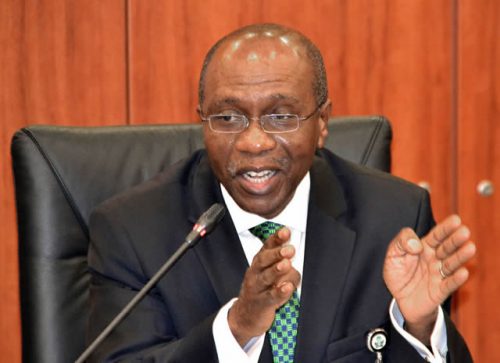The Central Bank of Nigeria (CBN) has disclosed that its foreign exchange policies, particularly the ‘Naira 4 Dollar Scheme’ have led to exponential boost in diaspora remittances into the country in the past one year.
The CBN Governor, Godwin Emefiele, made this disclosure at a special press briefing at the end of the Bankers’ Committee meeting held in Abuja.
Specifically, he said diaspora inflows into Nigeria increased from an average of $6 million weekly in December 2020 to an average of over $100 million weekly by January 2022.
He noted that diaspora remittances fell significantly in the wake of the Covid-19 pandemic just as the foreign exchange earnings significantly declined due to slump in exports and crash in oil prices.
The CBN Governor said: “This is understandable because to the extent that COVID-19 led to significant job losses in many advanced economies, diaspora remittances also suffered commensurate reductions in inflows into Nigeria.
“All these factors jointly explain the heightened pressures on the currencies of major emerging market countries, including Nigeria”, he added.
Emefiele further explained that the lessons that had been learnt from its policies on remittances can be applied in improving some aspects of the foreign exchange inflow into the country.
He listed the four major sources of forex inflow into Nigeria as including, Proceeds from oil exports, Proceeds from non-oil exports, Diaspora remittances and Foreign Direct/Portfolio Investments.
It would be recalled that the apex bank, had in a circular to all Deposit Money Banks (DMB) and International Money Transfer Operators (IMTO), in March last year, introduced a ‘Naira 4 Dollar Scheme’ for diaspora remittances.
The policy offers recipients of diaspora remittances through CBN’s IMTOs to be paid N5 for every $1 received as remittance inflow.
The ‘Naira 4 Dollar Scheme’ for diaspora remittances policy was introduced to encourage recipients of dollars to use formal banking channels and help the apex bank capture such inflows to boost the liquidity of the forex market and ensure the stability of the national currency – the Naira.
The Naira had been under severe pressure after the crash of oil prices last year at the global market following the devastating disruptions of the COVID-19 pandemic to global economies.






